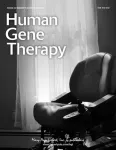(Press-News.org) At this year’s American College of Rheumatology (ACR) annual meeting, Hospital for Special Surgery (HSS) presented a number of important studies focused on reproductive health for patients with systemic lupus erythematosus, rheumatoid arthritis, and other rheumatic diseases, including issues related to fertility, sexual function, use of contraception and HPV vaccination.
What follows are some highlights from the meeting:
Association of Menstrual Cycles and Disease Flare Activity in Women with Systemic Lupus Erythematosus and Rheumatoid Arthritis
In this study, researchers surveyed female rheumatology patients to determine whether the menstrual cycle affects the timing of disease flares. More than 300 patients responded to the survey, and the analysis reported at the meeting included data from 122 respondents with systemic lupus erythematosus (SLE) or rheumatoid arthritis (RA) — 49 with SLE and 73 with RA.
Overall, 39% reported an association between their menstrual cycle and disease flares, with similar rates in both the SLE and RA groups. Those who experienced these flares usually had them within the week before or during their periods. The investigators say these findings could inform physician counseling and that closer monitoring of patients during vulnerable phases of the menstrual cycle could enable more timely intervention and better disease control. Additional research is planned to assess whether demographics, lifestyle and medical conditions may influence this potential association.
Authors: Lucy Masto, BS; Amaya Smole, BA, Caroline H. Siegel, MD, MS, Sarah B. Lieber, MD, MS, Sanjana Adurty (Weill Cornell Medical College), Jonah M. Levine, BA, Bessie Stamm, BA, Lisa A. Mandl, MD, MPH, Michael D. Lockshin, MD, Lisa R. Sammaritano, MD, Medha Barbhaiya, MD, MPH.
Contraception Choices in Individuals with Inflammatory Arthritis and Lupus-like Disease Differ Based on Diagnosis and Teratogen Use
This study surveyed women of reproductive age with systemic rheumatic disease about their use of contraceptives. Certain drugs prescribed for rheumatic disease are teratogenic, or can damage a fetus. Data were collected on 249 women with reproductive capacity, including 147 with inflammatory arthritis and 102 with lupus-like disorders.
The 52 participants taking teratogenic medication were more likely to discuss contraception with their rheumatologist compared with those not taking teratogenic medication (44.2% vs. 21.8%), and more frequently reported using permanent contraception (8.0% vs. 1.1%). Those taking teratogenic medication were no more likely to use effective contraception than those who were not: 44.0% reported using less effective methods such as barrier methods and fertility awareness/withdrawal or using no contraception. Those with lupus were less likely to use more effective methods containing estrogen (31.5% vs. 14.7%), even though these methods are safe for some (but not all) lupus patients. The findings highlight the importance of using educational interventions to optimize safe and effective contraception use in patients with systemic rheumatic diseases, especially those taking teratogenic medications and those with lupus-like diseases.
Authors: Caroline H. Siegel, MD, MS, Medha Barbhaiya, MD, MPH, Lucy Masto, BS, Amaya Smole, BA, Bessie Stamm, BA, Jonah M. Levine, BA, Sarah B. Lieber, MD, MS; Lisa A. Mandl, MD, MPH; Michael D. Lockshin, MD; Lisa R. Sammaritano, MD.
Demographic and Clinical Factors Associated with HPV Vaccination in Young Adults with Rheumatic Disease
Although the HPV vaccine is known to be safe and effective in people with rheumatic disease (RD), many do not get vaccinated. This study used data from the electronic health record of patients diagnosed with a rheumatic disease in adolescence, seen at HSS, to look at factors associated with HPV vaccination. Overall, the investigators found that among 321 individuals with rheumatic disease between the ages of 16 and 22, half were not fully vaccinated against HPV (2 or more doses).
Those who were white and non-Hispanic/Latino and those who had commercial insurance were less likely to be fully vaccinated —factors that are associated with lower vaccination rates in the general population. Those who were unvaccinated were more likely to have inflammatory arthritis versus other connective tissue diseases. Those who were fully vaccinated were also more likely to have received flu and COVID-19 vaccines. Further research is needed to identify and mitigate barriers to HPV vaccination in this high-risk group.
Authors: Caroline H. Siegel, MD, MS, Lauren Robinson, MD, Deanna Jannat-Khah, DrPH, Avi Mikhaylov, Nancy Pan, MD, Lisa R. Sammaritano, MD.
Educational Intervention to Increase Contraception Screening and Documentation for Reproductive-Aged Women Seen in an Academic Rheumatology Clinic
Only one-third of reproductive-aged women with rheumatic disease are prescribed effective contraception, despite the widespread use of teratogenic medications which can harm a fetus. This initiative aimed to increase the rate of provider screening and documentation of contraception use in the electronic health record for female rheumatology patients ages 18 to 45.
Interventions from the research team included educational presentations and motivating reminders for clinical staff. Over the 24-week study period, the rate of contraception documentation for these patients increased from 11% to 54%. Future phases of this initiative will focus on encouraging rheumatologists to provide contraceptive counseling and referrals to women’s health providers for patients taking teratogenic medications.
Authors: Caroline H. Siegel, MD, MS, Deanna Jannat-Khah, DrPH, Avi Mikhaylov, Erika Abramson (Weill Cornell Medicine), Nancy Pan, MD; Lisa R. Sammaritano, MD.
Experiences and Attitudes Related to Assisted Reproductive Technologies Among Women with Systemic Rheumatic Disease
Because systemic rheumatic diseases may be associated with decreased fertility in women, those with such diseases may pursue assisted reproductive technologies such as oocyte cryopreservation (OOC, or egg freezing). This study evaluated how sociodemographic factors and medical history influence OOC experiences and overall attitudes toward reproductive technologies among women with these conditions.
Among the 265 surveyed patients of reproductive age, 21 had done OOC (most before 35 years of age) and 102 had considered OOC. The factors that increased openness to OOC included having no previous pregnancies, having greater infertility concerns, lacking a spouse or partner, having a bachelor’s degree or higher, and having a history of taking certain immunosuppressive drugs. Among those who did not already have fertility issues, 64% reported that, if necessary, they would consider using these technologies only if their rheumatologist advised it was safe. The investigators say this study highlights the importance of studying the use of assisted reproductive technologies in women with systemic rheumatic diseases, and counseling patients regarding these options.
Authors: Sanjana Adurty (Weill Cornell Medical College), Lucy Masto, BS, Amaya Smole, BA, Caroline H. Siegel, MD, MS, Sarah B. Lieber, MD, MS, Jonah M. Levine, BA, Bessie Stamm, BA, Lisa A. Mandl, MD, MPH, Michael D. Lockshin, MD, Medha Barbhaiya, MD, MPH, Lisa R. Sammaritano, MD.
HPV Vaccination in Adolescent and Young Adult Patients Seen in an Academic Rheumatology Center
This study looked at rates of HPV vaccination in adolescents and young adults living in New York State who had received care from a rheumatologist. The investigators reviewed data from the electronic health record, including vaccination information from a New York State database, for 534 HSS patients ages 16 to 22. Less than half of patients had been vaccinated for HPV. The study found that HPV vaccination was more common in people with a rheumatic disease diagnosis compared to those who did not have a rheumatic disease, but not after accounting for demographic variables and receipt of other elective vaccines. Additionally, those who had received flu and COVID-19 vaccines were more likely to have been vaccinated for HPV.
The overall low rate of HPV vaccination was concerning because young people with rheumatic diseases may be at increased risk for HPV infection and HPV-associated cancers due to immune dysregulation, immunosuppression, and gaps in preventive healthcare delivery. The researchers note that interventions are needed to improve HPV vaccination rates in this population and that targeting elective vaccine uptake in general may be a useful approach.
Authors: Caroline H. Siegel, MD, MS, Lauren Robinson, MD, Deanna Jannat-Khah, DrPH, Avi Mikhaylov, Nancy Pan, MD, Lisa R. Sammaritano, MD.
Knowledge and Misconceptions about Contraception Among Individuals with Inflammatory Arthritis and Lupus-like Diseases
This study looked at what patients with systemic rheumatic disease know about the use of contraceptives, comparing the knowledge of women with inflammatory arthritis to those with lupus-like diseases. This analysis included female patients aged 18-49 years who were seen by a rheumatologist at HSS two or more times between 2020 and 2022, excluding those who reported menopause, oophorectomy, hysterectomy, or other causes of infertility.
The participants were surveyed about the effectiveness of various contraceptives and about misconceptions related to specific methods in the context of having a rheumatic disease. The researchers found that despite being highly educated (93.2% held a bachelor’s degree or higher), about half of all patients responded incorrectly to questions about the effectiveness of various contraceptive methods. Those with lupus-like diseases were more likely to report that certain hormone-based methods have contraindications, in response to both accurate and inaccurate statements. The researchers say the results reveal the need for better counseling of patients with systemic rheumatic disease.
Authors: Caroline H. Siegel, MD, MS, Medha Barbhaiya, MD, MPH, Lucy Masto, BS, Amaya Smole, BA, Bessie Stamm, BA, Jonah M. Levine, BA, Sarah B. Lieber, MD, MS, Lisa A. Mandl, MD, MPH, Michael D. Lockshin, MD, Lisa R. Sammaritano, MD.
Knowledge Related to Fertility and Infertility Treatments Among Women with Systemic Rheumatic Disease
Systemic rheumatic diseases can be associated with decreased fertility, but patients are not always aware of this connection. This study looked at patients’ understanding of these issues, taking into consideration the patient’s race, ethnicity, and socioeconomic status.
In an interim analysis of 142 reproductive-aged women treated at HSS for rheumatic disease who completed the Fertility & Infertility Treatment Knowledge Score (FIT-KS) test, the investigators found that — compared with women in the general population previously administered the FIT-KS — women with rheumatic diseases were more likely to be non-White, Hispanic/Latina and highly educated, and less likely to have had successful pregnancies. This population was more aware of the risks of infertility due to smoking, sexually transmitted infections and being underweight. These women also had a better understanding of success rates for vitro fertilization in older women but were less knowledgeable about the effectiveness of oocyte cryopreservation (OOC, or egg freezing). Future work will focus on highlighting important knowledge gaps among women with these diseases, particularly related to options for fertility preservation.
Authors: Sanjana Adurty (Weill Cornell Medical College); Lucy Masto, BS, Amaya Smole, BA, Caroline H. Siegel, MD, MS, Sarah B. Lieber, MD, MS, Jonah M. Levine, BA, Bessie Stamm, BA, Lisa A. Mandl, MD, MPH, Michael D. Lockshin, MD, Medha Barbhaiya, MD, MPH, Lisa R. Sammaritano, MD.
Reproductive History and HPV Vaccination Awareness Among Women with Systemic Lupus Erythematosus and Rheumatoid Arthritis
Women with systemic rheumatic diseases, particularly those with systemic lupus erythematosus (SLE), may be more vulnerable to HPV infection and HPV-related cervical cancer, but HPV testing and vaccination rates are low in these patients. This study compared HPV vaccination status and awareness in female patients with SLE to female patients with rheumatoid arthritis (RA).
The analysis included 295 participants with similar demographics; notably, those with SLE were slightly younger than those with RA. Both groups were similarly likely to be sexually active and had similar rates of having regular Pap smears; however, women with lupus were more likely to have persistent abnormal smears (13.3% vs. 1.7%). While not statistically significant, two women with lupus reported a cervical cancer diagnosis compared to none with rheumatoid arthritis. HPV vaccination rates were similar for the two groups, with 37% of 158 women eligible for the vaccine (including those made eligible given extended eligibility approved in 2019 for those aged ≤45 years if clinically appropriate) reporting having received full vaccination. Among the 79 women who had never received the vaccine yet were eligible, 90% reported that it had never been offered. These findings underscore the importance of increasing HPV vaccination rates and discussions about cervical cancer screening in women with SLE and RA.
Authors: Amaya Smole, BA, Lucy Masto, BS, Caroline H. Siegel, MD, MS, Sarah B. Lieber, MD, MS, Sanjana Adurty (Weill Cornell Medical College), Jonah M. Levine, BA, Bessie Stamm, BA, Lisa A. Mandl, MD, MPH, Michael D. Lockshin, MD, Lisa R. Sammaritano, MD, Medha Barbhaiya, MD, MPH.
Self-Reported Sexual Dysfunction and Perceptions of Rheumatologist Engagement on This Issue in Patients with Systemic Sclerosis
This study looked at the prevalence and risk factors of sexual dysfunction among people with systemic sclerosis (SSc). HSS researchers developed the Sexual Function in SSc Questionnaire (SFSScQ) to anonymously survey patients on whether they had problems with their sexual function and, if so, whether they had ever discussed it with their rheumatologist. Participants who completed the SFSScQ were also asked to complete the already-established Female Sexual Function Index or the International Index of Erectile Function Questionnaire.
More than half of those who completed both surveys (26 out of 41) reported that they had sexual problems. The researchers note that while the number of survey participants was small, age, sex, race, SSc subtype and time since SSc diagnosis did not appear to be predictors of sexual dysfunction. Importantly, although about half of participants agreed it was important to discuss problems of sexual function with their doctors, 64% of those who reported sexual problems had not done so.
Authors: Liza Morales, Robert F. Spiera, MD, Jessica K. Gordon, MD, Deanna Jannat-Khah, DrPH, Kimberly S. Lakin, MD, MS.
About HSS
HSS is the world’s leading academic medical center focused on musculoskeletal health. At its core is Hospital for Special Surgery, nationally ranked No. 1 in orthopedics (for the 14th consecutive year), No. 2 in rheumatology by U.S. News & World Report (2023-2024), and the best pediatric orthopedic hospital in NY, NJ and CT by U.S. News & World Report “Best Children’s Hospitals” list (2023-2024). In a survey of medical professionals in more than 20 countries by Newsweek, HSS is ranked world #1 in orthopedics for a fourth consecutive year (2023). Founded in 1863, the Hospital has the lowest readmission rates in the nation for orthopedics, and among the lowest infection and complication rates. HSS was the first in New York State to receive Magnet Recognition for Excellence in Nursing Service from the American Nurses Credentialing Center five consecutive times. An affiliate of Weill Cornell Medical College, HSS has a main campus in New York City and facilities in New Jersey, Connecticut and in the Long Island and Westchester County regions of New York State, as well as in Florida. In addition to patient care, HSS leads the field in research, innovation and education. The HSS Research Institute comprises 20 laboratories and 300 staff members focused on leading the advancement of musculoskeletal health through prevention of degeneration, tissue repair and tissue regeneration. In addition, more than 200 HSS clinical investigators are working to improve patient outcomes through better ways to prevent, diagnose, and treat orthopedic, rheumatic and musculoskeletal diseases. The HSS Innovation Institute works to realize the potential of new drugs, therapeutics and devices. The HSS Education Institute is a trusted leader in advancing musculoskeletal knowledge and research for physicians, nurses, allied health professionals, academic trainees, and consumers in more than 165 countries. The institution is collaborating with medical centers and other organizations to advance the quality and value of musculoskeletal care and to make world-class HSS care more widely accessible nationally and internationally. www.hss.edu.
END
HSS presents new reproductive health research at the ACR Convergence 2023
2023-11-14
ELSE PRESS RELEASES FROM THIS DATE:
Social factors, rather than biological ones, drive higher numbers of adverse drug events in women
2023-11-14
A new study out this week in the journal Social Science and Medicine proposes that social, gendered variables may better explain observed sex disparities in adverse drug events than sex-based biology.
Adverse drug events refer to harmful side effects resulting from the use of a drug. A 1.5-2 times higher rate of adverse drug events in women compared to men has long been observed, and addressing this disparity has been an enduring priority of women’s health advocates, medical researchers, and institutions such as the National Institutes of Health.
Advocates ...
Franck Marchis of SETI Institute honored as 2023 Fellow by California Academy of Sciences
2023-11-14
November 14, 2023, Mountain View, CA - Dr. Franck Marchis, a senior planetary astronomer at the SETI Institute, was appointed as a 2023 Fellow by the California Academy of Sciences (Cal Academy). Recognized for his exceptional contributions to the natural sciences, Marchis joins a distinguished group of scientists, including other notable SETI Institute Fellows of Cal Academy, such as Dr. Jill Tarter, Dr. Nathalie Cabrol, Dr. Seth Shostak, and Trustee Andrew Fraknoi.
“As an astronomer, I am constantly amazed by the vastness and complexity of the universe,” ...
Allison Institute hosts inaugural scientific symposium
2023-11-14
HOUSTON ― The James P. Allison Institute at The University of Texas MD Anderson Cancer Center hosted its inaugural scientific symposium on Nov. 10 at the TMC3 Collaborative Building in the Texas Medical Center’s Helix Park. The event brought together more than 400 leading scientists, including three Nobel laureates, from multiple disciplines to share groundbreaking immunotherapy and immunobiology research.
“Our inaugural symposium is an important milestone representing significant progress for the Allison Institute since we launched last year, and we’re energized by the exceptional science shared by our members and colleagues,” ...
Super speeds for super AI: Frontier sets new pace for artificial intelligence
2023-11-14
The team that built Frontier set out to break the exascale barrier, but the supercomputer’s record-breaking didn’t stop there.
“The exascale number marks a major milestone itself, but it also marks the beginning of a new chapter in high-speed computing,” said Feiyi Wang, an Oak Ridge National Laboratory computer scientist who leads research into artificial intelligence and analytics. “We don’t have to wait for the next generation of computing anymore. We can have it here today.”
Frontier claimed the title of fastest computer in the world by running at ...
How teachers would handle student violence against educators
2023-11-14
COLUMBUS, Ohio – For the first time, teachers in a nationwide study have told researchers what strategies they think work best to deal with student violence against educators.
Teachers rated suspending or expelling students as the least effective way of addressing violence, despite the popularity of “zero tolerance” policies in many school districts.
Instead, teachers rated prevention policies, such as counseling for troubled students and improving school climate, as the best strategy for dealing with violence.
“Teachers ...
New CPU vulnerability makes virtual machine environments vulnerable
2023-11-14
In the area of cloud computing, i.e. on-demand access to IT resources via the internet, so-called trusted execution environments (TEEs) play a major role. They are designed to ensure that the data on the virtual work environments (virtual machines) is secure and cannot be manipulated or stolen. Researchers at the CISPA Helmholtz Centre for Information Security and Graz University of Technology (TU Graz) have now discovered a security vulnerability in AMD processors that allows attackers to penetrate virtual work environments based on the trusted computing technologies AMD SEV-ES and AMD SEV-SNP. This is achieved by resetting data changes in the buffer memory (cache), which gives ...
Peer educators play key role in new recipe development and testing
2023-11-14
Philadelphia, November 14, 2023 – Cooking and recipe demonstrations encourage healthy eating and adoption of unfamiliar foods by class participants. The research brief shared in the Journal of Nutrition Education and Behavior, published by Elsevier, demonstrates that valuable input by peer educators can be obtained through a hybrid home-use testing method.
The process of recipe development involves sensory evaluation about the appearance, aroma, taste, texture, and flavor of the food. Although a controlled laboratory setting is the gold standard for evaluation because of consistent preparation and presentation of food, bringing peer educators to a ...
Advances and challenges in gene therapy for rare diseases
2023-11-14
New Rochelle, NY, November 13, 2023—A new review article in the peer-reviewed journal Human Gene Therapy summarizes the significant milestones in the development of gene therapy medicinal products that have facilitated the treatment of a significant number of rare diseases. The article also describes the challenges in the progress of gene therapy for rare diseases. Click here to read the article now.
Juan Bueren, from Centro de Investigaciones Energéticas Medioambientalies y Tecnológicas (CIEMAT), ...
What factors influence PrEP prescribing behavior in health care providers?
2023-11-14
HIV pre-exposure prophylaxis (PrEP), a daily dose of two medications meant to prevent HIV infection in high-risk people, has changed public health dramatically in recent years. Yet, adolescents and young adults, one high-risk group, have shown slower uptake in using this prevention method.
Despite accounting for around 20 percent of new HIV infections, adolescents and young adults between the ages of 13 and 24 are still largely not being prescribed PrEP. Research has described physician intentions to prescribe PrEP to at-risk young people, but no studies until now have focused on factors that may affect actual prescribing of this evidence-based ...
ASCE establishes Dan M. Frangopol Medal for Life-Cycle Civil Engineering of Civil Structures
2023-11-14
The American Society of Civil Engineers (ASCE) recently instituted the Dan M. Frangopol Medal for Life-Cycle Engineering of Civil Structures in recognition of the Lehigh Engineering professor’s contributions as a pioneering researcher and educator and leading authority in the fields of life-cycle civil engineering and life-cycle cost optimization.
The award pays tribute to Frangopol, the inaugural Fazlur R. Khan Endowed Chair of Structural Engineering and Architecture in the Department of Civil and Environmental Engineering ...





